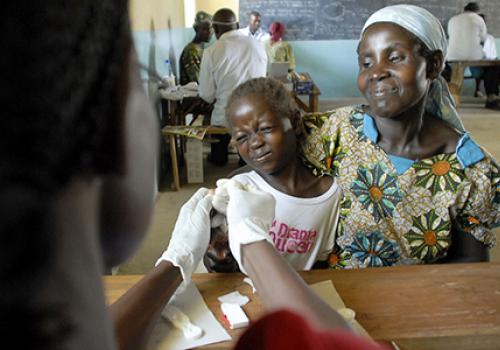The domestic funding of malaria programmes in the Southern African Development Community (SADC) Member States has increased by an average 8% since 2018. Although the effort by Member States is commendable, additional investment in national malaria programmes is needed to compensate the ever-decreasing international support in the fight against malaria.
The Region this year commemorated the SADC Malaria Day on 6 November amid intensified efforts by Member States to eliminate the mosquito-borne disease. SADC Malaria Day is commemorated every year with the aim to create awareness about malaria and mobilise the communities to participate in the malaria control programmes. The day is commemorated at the beginning of the summer season as cases of malaria increase during the rains. Already this year, regional weather experts have forecast that most parts of SADC are likely to receive normal to above normal rains.
SADC Member States have re-affirmed their commitment to eliminate malaria in the region in accordance with the SADC Protocol on Health and the SADC malaria framework. They have further committed to additional domestic funding for malaria elimination to ensure malaria programmes are adequately funded and national targets are met.
The Malaria Elimination Framework was developed to provide a platform for the harmonisation of policies, guidelines and protocols for malaria control and elimination in the SADC Region.
The framework is also aimed at the mobilisation of resources, partnerships and collaborations to support Member States in controlling and ultimately eliminate malaria within their national boundaries.
Substantial resources have been mobilised to support SADC Member States’ implementation of malaria control programmes through partnerships with the Global Fund (GF), the Roll Back Malaria (RBM), African Leaders Malaria Alliance (ALMA) and the Elimination Eight (E8) Initiative. The support has enabled Member States to record significant progress in the control of malaria, and set the pace for elimination by the year 2030.
The E8 is an initiative of eight SADC Member States aimed at collaborating in the elimination of malaria by 2030. The eight countries are Angola, Botswana, Eswatini, Mozambique, Namibia, South Africa, Zambia, and Zimbabwe.
With regards to malaria, harmonised minimum standards for the prevention, treatment and management of the disease in the Region have been developed to promote health through support for the control of communicable diseases; and preparedness, surveillance and responses during emergencies. The E8 have made strides in undertaking measures, which are geared towards malaria elimination and improvement has been noted in some Member States.

